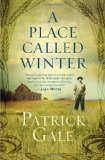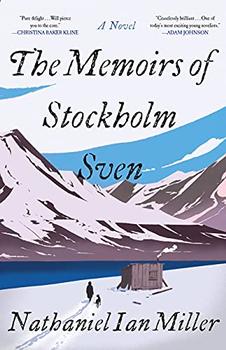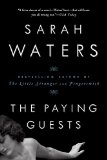Summary | Excerpt | Reviews | Beyond the book | Read-Alikes | Genres & Themes | Author Bio

When we first meet Harry Cane, he's in an institution, somewhere in Canada, where attendants are forcing him into a bath to calm him - a treatment for some kind of mental problem. Thankfully, Harry's removal from this place brings him to another facility, with more humane treatments. This is when author Patrick Gale returns us to Harry's younger days in early 20th century England, soon after his father's death. What transpires between these events includes his brother-in-law's discovery of Harry's affair with another man, which forces him to leave his wife and daughter, and find a new life as a farmer in Winter, in the Canadian province of Saskatchewan – hence the title of the book.
Fans of Gale's work will already be familiar with his tender writing style. He creates a level of intimacy with his characters, which practically begs readers to embrace them with both their hearts and minds. They are realistic, honest, but also flawed, and act foolishly just as easily as they act responsibly. Equally as important is how they are scarcely ever predictable, and this keeps our attention while heightening our anticipation of what will happen next. Even Gale's minor characters get the same kind of attention. In A Place Called Winter, Gale has deepened his character development skills, probably because Harry Cane was a real person – he was Gale's great-grandfather.
This intimacy is particularly apparent in how gently Gale portrays Harry, who isn't a large or very physical man, which is unusual for a farmer. Harry's inner strength helps him withstand the physical difficulties, and through this sheer willpower and determination to succeed, his body eventually complies with his demands. This inner will, as well as his solid sense of self, echo Gale's depiction of Harry's childhood years as being mostly solitary, yet he was respected enough to avoid being bullied. And then later, when Harry is with his wife and daughter, he continues to be a loner, playing at being part of their world, while remaining the outsider. In fact, Harry only takes an active part in his own life when he finally gives himself to another person fully (his male lover), which leads to his decision to exile himself from England. Gale develops Harry's character and his growth with such agility, combined with the natural tension of Harry slowly learning to accept who he really is. This is exactly the type of creativity and artistry that puts me in awe of Gale's writing.
Gale also uses these skills in his depiction of the novel's landscape – an area of Canada which, at the time, was still harsh and wild and mostly untouched. Through Gale's descriptions, Harry observes the rawness of the land, which in its untamed state is still picturesque. We watch Harry as he moves through places that are startlingly different from his English home, yet he is still able to see its beauty. Furthermore, as Harry learns more about himself, he also learns more about taming the land, and both are sources of gratification. In short, Gale fills Harry's world with ugliness and splendor, harshness and kindness, both from without and from within.
How much of this story is true to the real one of Harry Cane's life is irrelevant. Certainly, the amount of information Gale received from his grandmother must have had many gaps where he had to fill in and add details. Gale clearly overcame all of these obstacles, and in doing so, gave us something marvelously well rounded, fascinating throughout, and a loving tribute to a man he never had the chance to know. This makes me think that Harry would have been very pleased to see his very successful great-grandson live as an openly proud, gay man.
![]() This review
first ran in the May 18, 2016
issue of BookBrowse Recommends.
This review
first ran in the May 18, 2016
issue of BookBrowse Recommends.

If you liked A Place Called Winter, try these:

by Nathaniel Ian Miller
Published 2022
The "ceaselessly brilliant" story of one man who banishes himself to a solitary life in the Arctic Circle, and is saved by good friends, a loyal dog, and a surprise visit that changes everything (Adam Johnson, Pulitzer Prize–winning author of The Orphan Master's Son).

by Sarah Waters
Published 2015
A love story, a tension-filled crime story, and a beautifully atmospheric portrait of a fascinating time and place.
Your guide toexceptional books
BookBrowse seeks out and recommends the best in contemporary fiction and nonfiction—books that not only engage and entertain but also deepen our understanding of ourselves and the world around us.